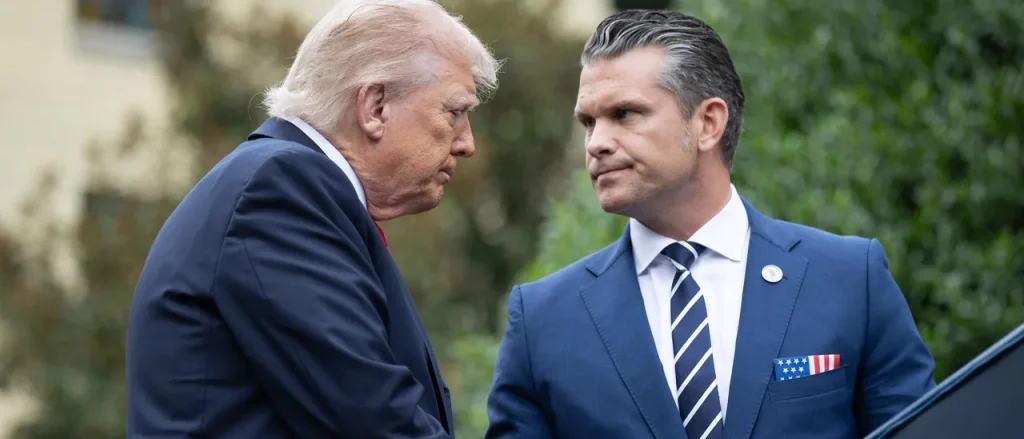President Trump’s pick to lead JSOC, Lt. Gen. Jonathan P. Braga, has become a flashpoint for conservatives uneasy about woke influence in the military. The nomination touched off predictable fury from activists who say Braga championed Diversity, Equity and Inclusion policies. For Republicans who want the military focused on mission and merit, this is not a small disagreement — it is a test of the administration’s resolve.
Why the Row Matters
Conservative critics point to Braga’s record at USASOC as evidence he pushed DEI and related cultural priorities at the expense of unit cohesion. That scrutiny has only intensified since Trump recommended him for the JSOC job. The core concern is simple: can a leader who promoted these policies be trusted to rollback DEI directives once in charge?
William Thibeau, director of the American Military Project at The Claremont Institute, said he heard from service members who were in “utter dismay.” Those messages, he says, came from active duty troops who felt misrepresented and judged by internal studies. That kind of blowback matters in Republican circles where troop morale and trust of commanders carry real weight.
One finding conservatives seized on is Braga’s role in a 2023 study titled ‘Women in ARSOF.’ Critics argue the study cast elite operators as reflexively sexist and painted broad brushstrokes over a competent force. “Braga published the ‘Women in ARSOF’ report where he surveyed SOF operators only to cast them as bigots and sexists,” Thibeau wrote, and the report was later scrubbed from the USASOC site.
The study included blunt comments from operators that illustrated a cultural rift, and those comments have been used as proof that DEI messaging poisoned internal debate. One cited remark reads, “The idea that women are EQUALLY as physically, mentally and emotionally capable as men to effectively perform the majority of jobs within ARSOF is, quite frankly, ridiculous.”
Another comment captured the raw frustration some operators felt: “Females have no place on a Team. It’s an unnecessary wrench in a perfectly functional system in the name of ‘political correctness.’ This trend is another factor that has systematically blunted the tip of the spear,” the respondent wrote. Republicans use these kinds of lines to argue DEI can undermine readiness when it discounts operational realities. Military effectiveness is the standard for conservatives, and anything that appears to chip away at it sets off alarm bells.
Social Media and the Spotlight
Public attention grew after influential accounts flagged Braga’s ties to Pride month messaging and other inclusive gestures at USASOC. The controversy is less about celebrating individuals and more about whether leadership time and energy were spent on cultural initiatives rather than operations. Conservatives say this signals a broader preference for policy activism inside the ranks.
At issue is a USASOC social post that read, “USASOC recognizes June as Pride month, celebrating all LGBTQ+ members in our formations. Throughout American history, LGBTQ+ members have not only fought for the right to serve openly, but have also fought in every major war and conflict. Despite the challenges LGBTQ Army Soldiers and Civilians faced, their commitment to service has made our military stronger and the Nation safer,” which critics note was broadcast across official channels.
Braga also signed a 2024 memo that tied diversity to performance expectations in USASOC and pledged action to identify and remove workplace inequities. The memo says leadership will “work towards identifying and eliminating inequities if they exist in the workplace and take prompt and appropriate action to resolve discriminatory issues, should they arise.” Republicans argue making diversity a mandatory performance element risks politicizing evaluations and promotions.
There’s also a November 2021 EEO and Harassment memo Braga signed that asked commanders to hold leaders accountable for fostering “a climate of diversity and inclusion within the organizations that is free from harassment and does not tolerate retaliation.” That language mirrors priorities of the previous administration and the Pentagon at the time, and it gives conservatives pause about whether Braga would pivot away from those priorities under a Trump administration.
Thibeau framed the problem bluntly: “It seems unlikely that any superior officer or political official ordered him to cast wide swaths of operators, Rangers, and Green Berets as bigots and sexists in the ‘Women in ARSOF’ report from 2023,” he said. “That is just one example. TLTG Braga’s decades of exemplary service deserve recognition and thanks, but President Trump and Secretary Hegseth cannot have the confidence that he will faithfully discharge their orders to undo DEI in the military when he was such a vigorous proponent of those policies in the first place.”
The GOP Calculus
Republicans face a choice: back Trump’s nominee despite the record on DEI or demand a nominee who has clearly shown a commitment to purge woke policies from the armed services. For a base that rallied on restoring merit and focus to the military, Braga’s history is a political problem. Party leaders will weigh loyalty to Trump against the optics of confirming a DEI proponent to lead a critical special operations command.
The controversy also highlights a practical question: can the White House and Defense leadership trust a nominee to reverse cultural programs he once advanced? Conservatives want proof not promises, and they’re pressing for clear commitments on policy and personnel. That scrutiny will shape votes and hearings in the weeks ahead.
At stake is more than one nomination; it’s a test of whether the Republican agenda to depoliticize the military and restore an operational focus will be enforced at the highest levels. If the administration wants to move fast on undoing DEI, picking leaders who share that vision matters. This fight over Braga shows how personnel choices can become lightning rods for larger cultural battles inside the force.
